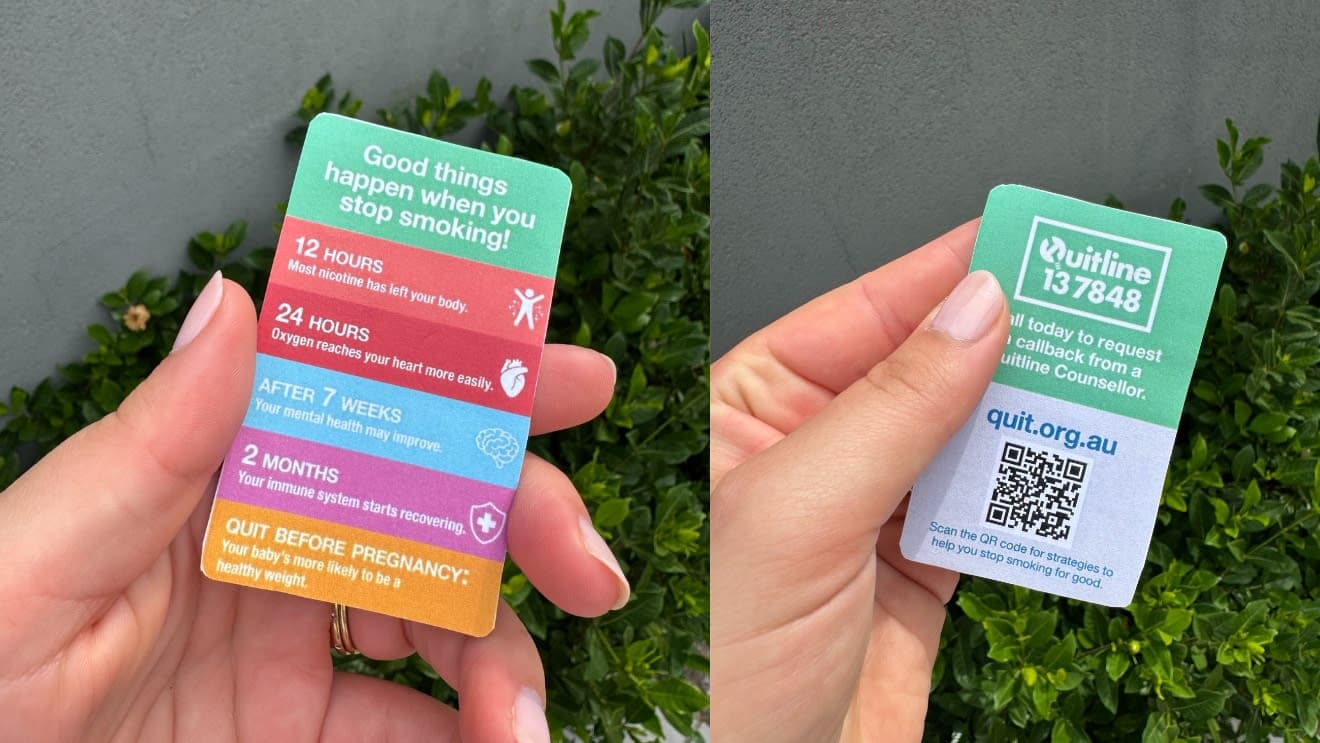Did you know: Smoking and vaping rates in the lesbian, gay, bisexual, transgender, intersex, queer and asexual (LGBTIQA+) communities are about double the national average? Quit is a culturally safe space, here to empower people in the LGBTIQA+ community who smoke or vape to quit.
Find your why: your quitting journey is as unique as you
Congratulations on taking a step towards quitting. Your quitting journey is as unique as you are, and quitting looks different for everyone.
We sat down with community advocates Thomas Jaspers and Matilda Mercury to find out how they knew it was time to quit, and how quitting has changed their lives
When you quit, your physical health improves. But did you know physical wellbeing is just the beginning? Quitting will also:
Improve your mental health and reduce your stress levels.
Free up money that you could put towards your lifestyle goals like a holiday, your savings, a new car, dining out or other experiences that bring you joy.
Free up your time to do the things that are important to you.
Why is smoking and vaping more common in LGBTIQA+ communities?
Research reveals that LGBTIQA+ community members face various social and psychological challenges, making them more likely to smoke compared to the general population. These challenges include:
coping with additional stress
experiencing discrimination
social anxiety
possible rejection from loved ones
experiencing of psychological trauma
normalisation of smoking and vaping in social circles and venues
links to alcohol and other drug use.
How to stop smoking and vaping
To give yourself the best chance to stop smoking and vaping, it helps to:
Set up a quit plan.
Make changes to your routine to reduce triggers to smoke.
Think about ways to reduce stress.
Not everyone succeeds the first time they try to stop smoking, and some people will try multiple times before they succeed.
Quitline (13 7848) is a culturally safe space
Quitline counsellors can chat to you in a culturally appropriate and accessible way. You'll also find peers working in the service.
Quitline counsellors offer personalised support throughout your quitting journey, whether it’s your first or fifth attempt to quit. Quitline counsellors help you build and keep up your motivation to quit and can help you create a stop smoking plan that suits you. Quitline counsellors can also support you if you are using vapes to stop smoking and can help you stop vaping.
Contacting Quitline increases your chance of quitting successfully. There are many ways to get in touch with Quitline.
Also check out the My QuitBuddy app: My QuitBuddy is an app that helps you get, and stay, smoke-free and vape-free. It provides helpful tips to overcome cravings and tracking systems to chart your progress. My QuitBuddy gives you the facts you need to understand the impacts smoking and vaping have on your health.
Working with the LGBTIQA+ community
Want to learn more about Quit's partnerships and projects with the LGBTIQA+ community to become smoke-free?


